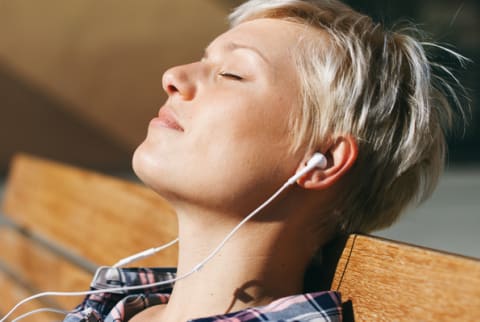Advertisement
Why Taking Breaks Makes You More Productive


Before I decided to launch my own business, I worked for a busy corporate consulting firm. There was a lot about that firm that was great: the staff was bright and talented, we took pride in our work and we made important contributions to the businesses we helped.
However, there was one aspect of the culture that was a real problem. Because our goal was to fill every possible minute with billable work, taking breaks wasn’t always looked upon positively. Our goal was to be there for our clients as much as possible, so we frequently scheduled back-to-back meetings — sometimes even through lunch, early in the morning, in the evenings, and during vacations.
The irony of it is, if we had wanted to truly be at our best, we would have been taking breaks. Why? Because science tells us to!
Read on, and you'll be comforted to learn that contemporary scientific research is supporting your choice to give yourself a break.
1. Breaks help you refocus.
Have you had the experience of working on a task for an extended period of time, only to feel as if after a certain point you were just spinning your wheels? That’s because we can only maintain our attention for so long, due to a process called habituation. Just like we can go “nose blind,” or habituate to a smell if exposed to a given scent for a period of time, if we are exposed to a certain task for a length of time, our brains pay less attention to it across time. Our brains, just like our bodies, need to relax in order to stay optimally functional.
For example, one research study showed that when subjects took part in a 50-minute memory task on a computer, the group that was given brief breaks performed better compared to those who didn’t take breaks (whose performance actually declined). So, give yourself a moment to take a brief break throughout the day to stay mentally alert.
2. Snack breaks can help you make better decisions.
Researchers have found that the act of making lots of decisions can deplete your mental energy, through a process called “decision fatigue.” So, whether you are determining how to best serve disgruntled customers or deciding which out of the hundreds of patterns to choose for your wedding china (At work? Never!), the quality of your decisions will suffer across time. How does this happen? Scientists say that because your mental energy is diminished, you will be more prone to either (1) make reckless decisions or (2) stick with the status quo, instead of weighing all the facts appropriately.
The solution? Simply taking a snack break to get your glucose level back up, boosts your mental reserves. In fact, in one study, prisoners who appeared before a parole board early in the morning (after the judges had recently eaten) received parole 70% of the time; whereas those who appeared late in the day only received it 10% of the time (the average facts of the case did not differ). In other words, judges who were more mentally alert considered the cases, whereas those who were more mentally depleted opted for the easier choice of sticking with the status quo (i.e. letting the prisoners stay in jail).
3. Naps can boost your memory.
Sleep experts say that a mere 10 minute nap can boost your level of alertness and get you back on track for the rest of the day. In fact, a 60 minutes of shut-eye is ideal for processing and memorizing facts, whereas a 90-minute nap will help increase your creativity and procedural memory (which is the part of your memory that recalls how to do something, like ride a bike).
And, while I recommend getting more sleep if you’re feeling tired, for something entirely counterintuitive that works in a pinch when you’re feeling drowsy, drink coffee right before taking a 20-minute nap.
How does this work? A molecule named adenosine, that is responsible for your tired feeling, slows down your nerve cells. As you might expect, the act of sleeping reduces the amount of adenosine in the body. Caffeine, on the other hand, speeds up nerve cells, and takes about 20 minutes to kick in. So, in essence, you are combining the effects of caffeine and napping with this “coffee nap.” In fact, researchers found that individuals who had taken a coffee nap made fewer errors in a driving simulator compared to those who just napped, or just drank coffee.
4. Vacations aren't just for fun.
The U.S. is the only “advanced” economy that doesn’t guarantee paid vacation. And perhaps, as a result, approximately 40% of Americans didn’t take a vacation day in 2014 according to a popular travel website.
However, there are a host of benefits to taking vacation, including longevity, decreased risk of burnout and depression, and increased job satisfaction. Make sure to schedule vacation time on your calendar to be at your best at work — and in life.
So if you feel inclined to take a break during the workday, don't beat up on yourself for being lazy or self-indulgent. Odds are, you're just doing what's in your best interest to stay focused and produce good work!